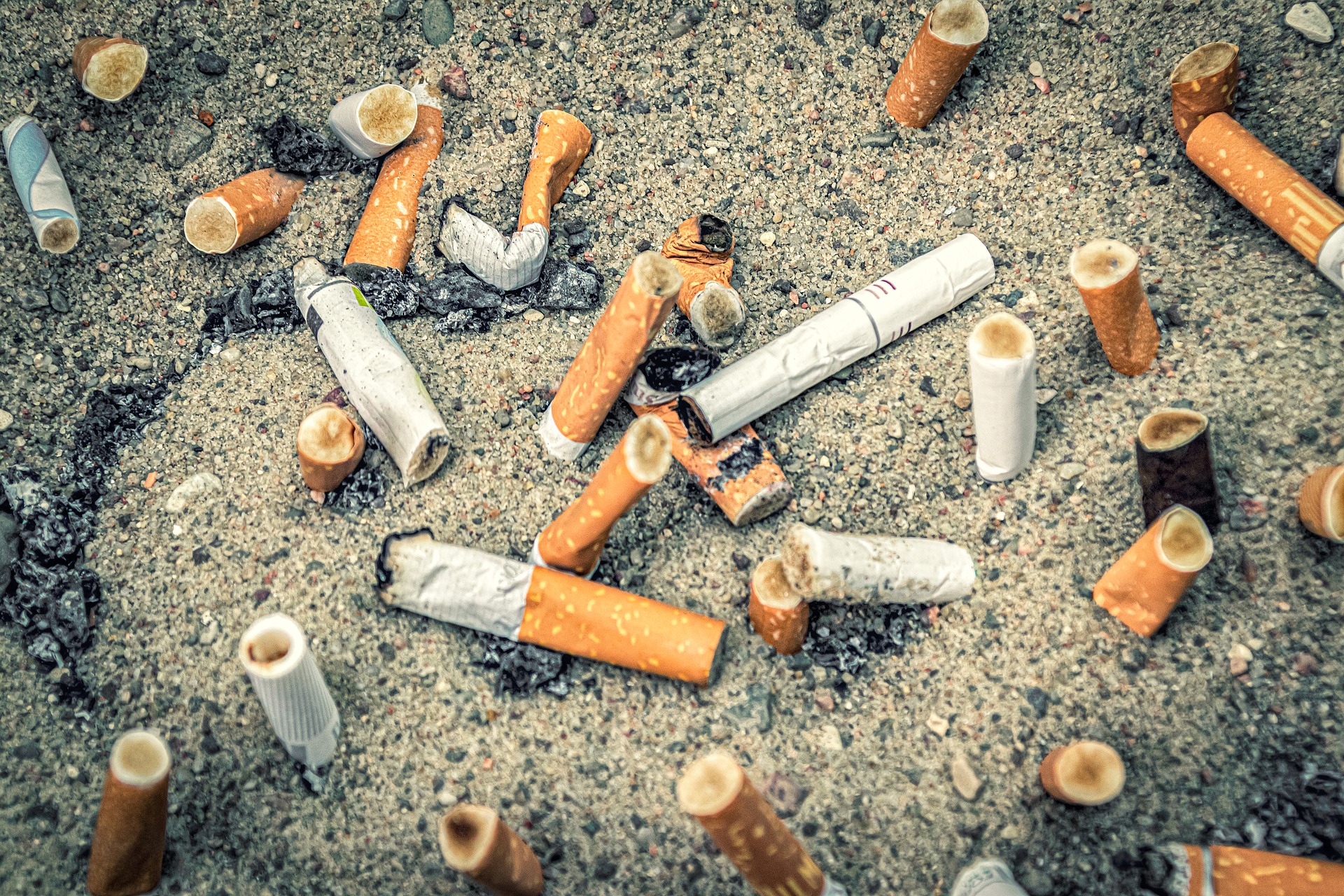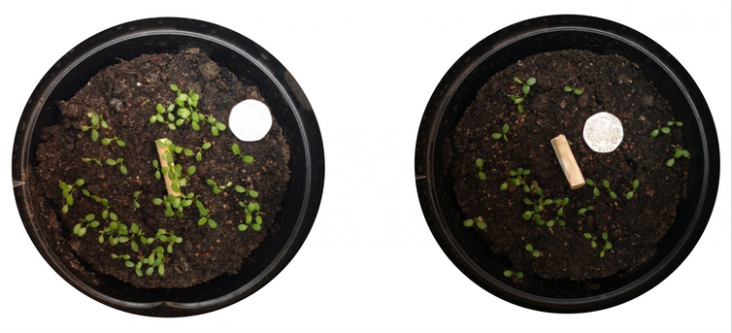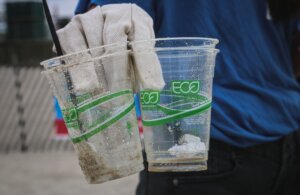Plant growth around a wooden stick versus plant growth around a cigarette butt. (Credit: Danielle Green, Author provided)
It’s amazing how quickly people have ditched plastic straws thanks to campaigns to discourage us from using such “pointless plastic”, states Dannielle Green in her article on Theconversation.com. Yet rarely do we hear about a much more common source of plastic pollution.
Cigarette butts or filters are the most littered item on the planet. An estimated 5.6 trillion cigarettes are smoked each year, out of which two thirds are improperly disposed of. That’s [4.5 trillion butts] each year. Since the 1980s, cigarette butts have accounted for 30% to 40% of all litter found in coastal and urban litter clean-ups.
They are a common eyesore on our streets, our parks, our beaches and in our waterways. Many smokers admit to littering cigarette butts, possibly because they believe them to be benign or biodegradable and somehow do not consider them as litter. But as well as taking much longer to break down than most people think, discarded cigarette butts may significantly damage surrounding plant growth, as our new research suggests.
Cigarette butts are composed of thousands of cellulose acetate fibres and, although biodegradable, take years to disappear from the environment. Cellulose acetate fibres, like other microplastics, are also a common contaminant found throughout the world’s ecosystems, even accumulating at the bottom of the deep sea.
Used filters also contain thousands of chemicals that can kill plants, insects, rodents, fungus and other lifeforms, and some of which are known carcinogens. There are many reports of young children and pet dogs accidentally swallowing cigarette butts, and they’ve even been found in wild animals such as seabirds and turtles. Ingestion can cause vomiting and, in some cases, convulsions. The leachates from cigarette butts can be toxic to aquatic organisms such as bacteria, crustaceans, worms and fish.










